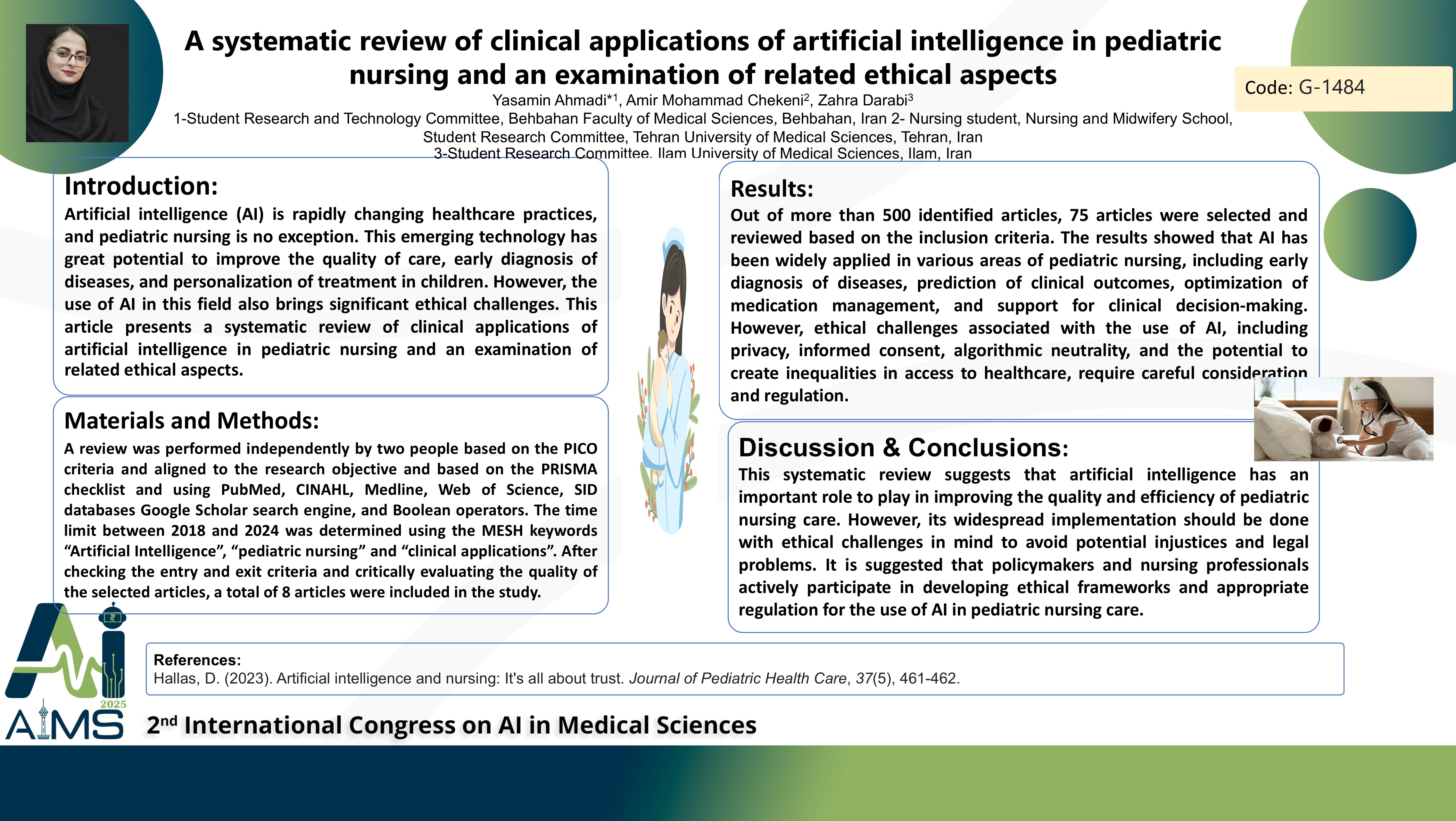مرور سیستماتیک بر کاربردهای بالینی هوش مصنوعی در پرستاری کودکان و بررسی جنبههای اخلاقی مرتبط
کد: G-1484
نویسندگان: Yasamin Ahmadi * ℗, Amir Mohammad Chekeni, Zahra Darabi
زمان بندی: زمان بندی نشده!
برچسب: سیستم های تصمیم یار بالینی
دانلود: دانلود پوستر
خلاصه مقاله:
خلاصه مقاله
Introduction: Artificial intelligence (AI) is rapidly changing healthcare practices, and pediatric nursing is no exception. This emerging technology has great potential to improve the quality of care, early diagnosis of diseases, and personalization of treatment in children. However, the use of AI in this field also brings significant ethical challenges. This article presents a systematic review of clinical applications of artificial intelligence in pediatric nursing and an examination of related ethical aspects. Methods: A review was performed independently by two people based on the PICO criteria and aligned to the research objective and based on the PRISMA checklist and using PubMed, CINAHL, Medline, Web of Science, SID databases Google Scholar search engine, and Boolean operators. The time limit between 2018 and 2024 was determined using the MESH keywords “Artificial Intelligence”, “pediatric nursing” and “clinical applications”. After checking the entry and exit criteria and critically evaluating the quality of the selected articles, a total of 8 articles were included in the study. Results: Out of more than 500 identified articles, 75 articles were selected and reviewed based on the inclusion criteria. The results showed that AI has been widely applied in various areas of pediatric nursing, including early diagnosis of diseases, prediction of clinical outcomes, optimization of medication management, and support for clinical decision-making. However, ethical challenges associated with the use of AI, including privacy, informed consent, algorithmic neutrality, and the potential to create inequalities in access to healthcare, require careful consideration and regulation. Conclusion: This systematic review suggests that artificial intelligence has an important role to play in improving the quality and efficiency of pediatric nursing care. However, its widespread implementation should be done with ethical challenges in mind to avoid potential injustices and legal problems. It is suggested that policymakers and nursing professionals actively participate in developing ethical frameworks and appropriate regulation for the use of AI in pediatric nursing care.
کلمات کلیدی
Artificial Intelligence, Pediatric Nursing, Clinical Applications
